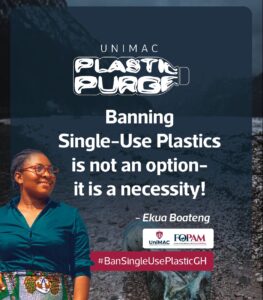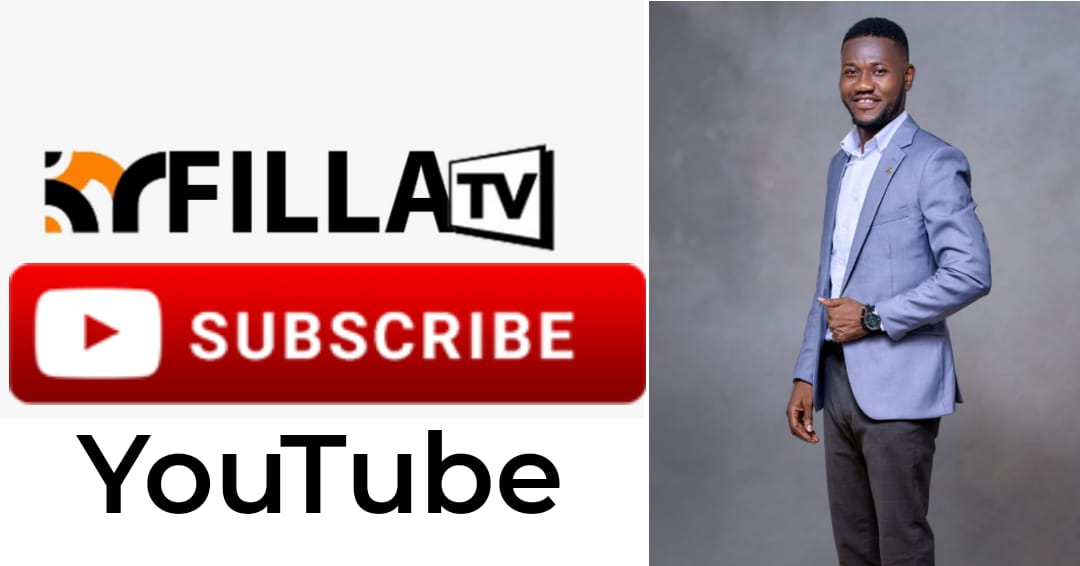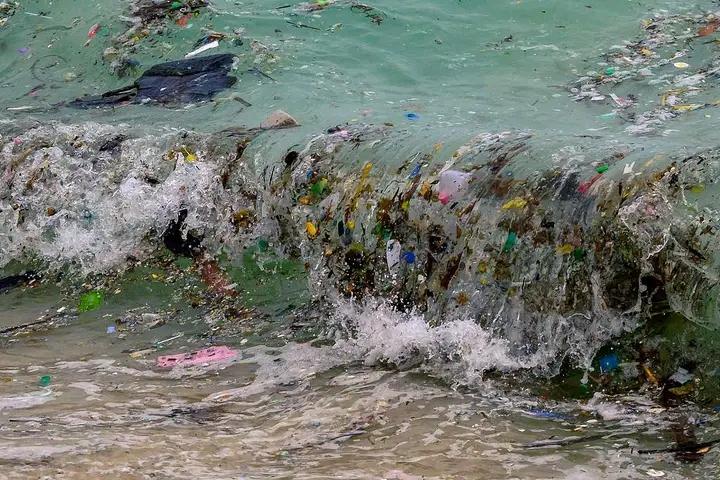Panelists at the UniMAC digital lobbying campaign launch have called on the government to take immediate action against single-use plastics to help protect the environment.
They explained that a ban on single use plastics was no longer a matter of choice, but a pressing necessity to end the plastic menace in the country.
In a panel discussion at the launch of the digital lobbying campaign dubbed UniMAC Plastic Purge at the X space, the panelists including Ms Patience Koryoe, Ms Mawusi P. Nyavor, and Ms Ekua Patience Boateng all level 400 Public Relations and Marketing students of UniMAC reiterated single use plastics would continue to be menace until stakeholders take drastic action against them in Ghana.

Single use purpose
Single use plastics are designed to be used for single use purposes.
These items include plastic bags, sachets, straws and stirrers, cups, cutlery, drink and water bottles, and most food packaging items. Petroleum-based disposable plastics are not biodegradable and are difficult and expensive to recycle.
Such single-use plastics usually end up at the landfill where they are buried or find their way back into the environment, including the ocean.
This has a devastating impact on not only the environment but economies, ecosystems, infrastructure and human lives.
In Ghana, single-use plastics contribute to flooding as a result of choked gutters. This poses a major challenge for waste management in cities especially Accra and Kumasi.
The campaign
The digital lobby campaign, an initiative of the university, is targeted at ending single-use plastics in the country. This initiative aligns with the growing global concern to combat plastic pollution and promote sustainable environmental practices.
The campaign, spearheaded by Level 400 Public Relations (PR) and Marketing students offering Government Relations and Public Affairs (CSPR 409) course, seeks to create awareness and advocate for stronger policy action against single-use plastics in the country.
The campaign will leverage stakeholder engagement, media advocacy, and largely social media activism to influence public opinion and drive legislative change.
Collaboration
As part of the campaign, students are expected to collaborate with policymakers, civil society organisations, environmental activists, and influencers to drive discourse on the urgent need for action.
A series of online engagements, including webinars, X Spaces, and multimedia storytelling, will be used to educate the public to effect immediate decision making for environmental sustainability.
The public is encouraged to participate in this digital lobby by using the campaign hashtag, #BanSingleUsePlasticsGH on all social media platforms.
Source:Maclean Kwofie


